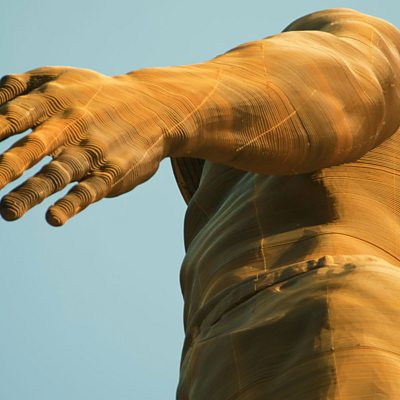Episode details

Radio 4,3 mins
"Trying to create a better society is not a discipline, itтs a moral commitment." Professor Mona Siddiqui - 07/03/16
Thought for the DayAvailable for over a year
Many years ago a British diplomat to Pakistan told me of the millions that had been invested in the car manufacturing industry in Pakistan. In his view it was a good trade link, but also capacity building. I suggested that rather than invest only in science and technology why not put some money into the arts and humanities in countries where development was still an ongoing concern. He thought it was an interesting idea but that poor countries needed investment for vocational training, real jobs to get the economy going and that arts and humanities were more about self- indulgence. Two weeks ago I was in the Middle East having a similar conversation. As part of their ambition to move up the international league tables, why not expand and inspire the arts and humanities base? One senior authority in the Emirates said we have the best engineers, the best architects, dentistry, medicine, everyone wants to come here. He looked at me to say what will the arts and humanities add? Higher education is not about polarising the sciences from the arts, a futile and damaging binary for all of us who care about the purpose of education. Trying to create a better society is not a discipline, itтs a moral commitment. But in many parts of the world, where there are fewer intellectual and social freedoms, less pluralism, where the spirit of critical inquiry, knowledge for knowledgeтs sake, is seen as either derisory or suspect, what is considered real education matters. If there is little or no place for literature, ethics and philosophy, subjects which take us into ourselves, open our minds to human diversity and cultural richness throughout history, then any society, including our own is in danger of becoming intellectually and emotionally closed. The real value of education is about seeing alternatives, challenging everyday practices and assumptions to provoke us not only to think about who we are but who we might become as individuals and as a society. We should be able to ask the question `what is it to be humanт in all kinds of ways without expecting any definitive answers. Growing up I was encouraged to say the prayer тGod increase me in my knowledgeт. The prayer is about desire for learning not a plea for answers. Investing in the arts and humanities, is about investing in a fuller understanding of the world and being able to see our histories and cultures through a more critical lens. Without this lens, knowledge can so easily slip into conviction and triumphalism as can be seen in the rise of intolerant religious fundamentalisms. This can happen anywhere. It seems to me that rather than being viewed as a luxury, a holistic education which creates space for critical thinking, should be encouraged as fundamental to coexistence and peace.
Programme Website